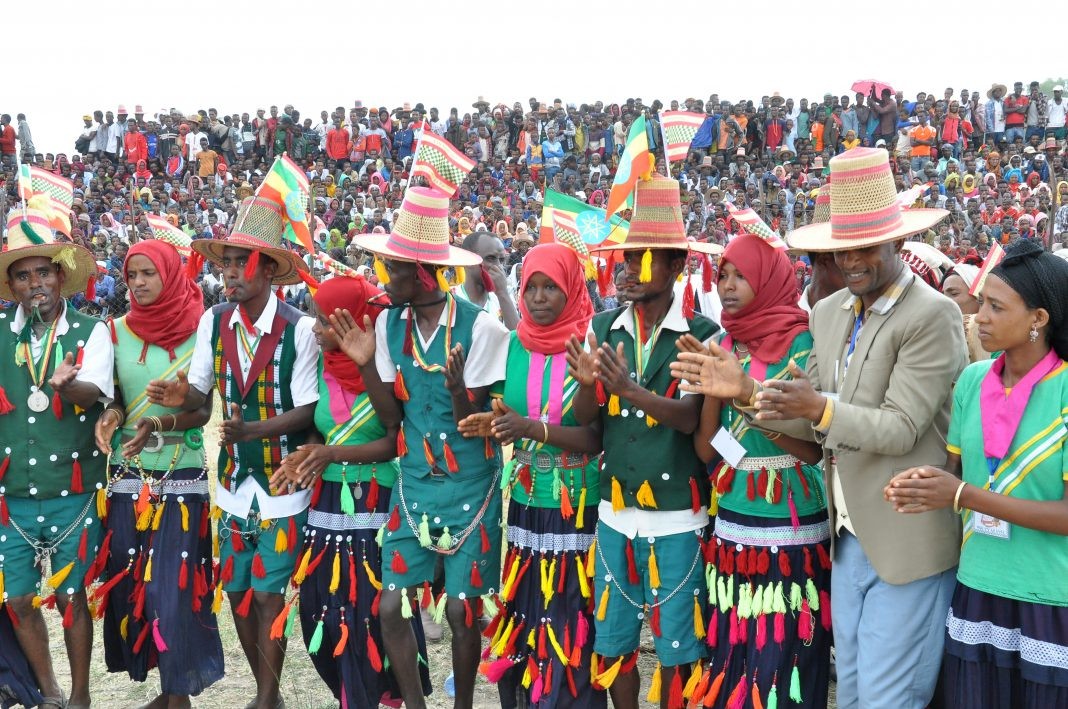
The traditional administrative system of Halaba people
By Abdurezak Mohammed
The people of Halaba, a small farming community that is situated in southern Ethiopia, a three hours drive from the capital Addis Ababa, have their own traditional administration system. According to Halaba elders, the history of the traditional administrative system of Halaba people is related to the history of the ethnic group.
This traditional administrative system is called Siera or Bobenie in the Halabisa language. Siera of Halaba people includes their culture, language, and traditional judicial system. The Halaba people are administered by their tribe leaders, and the major organ of this traditional administrative system is a general assembly called Halabi Ogete or Ogete.
The name of the leader of this judicial system is called “Wema”, which means a king. The seat of this judicial system is not permanent, and it is held under the shade of big tree, called Ogete Hala.
According to Amrulah Telaha, historian and Head of Halaba Development Association, the general assembly has four levels. The first level is Boki Ogete (Yebeteseb Shengo), and it oversees issues of all members of the family with up to four or five generations.
The second level is occupied by Mini Ogete (Yebetezemed Shengo), which solves conflicts in all members of the family with up to seven or eight generations. Debo Ogete (Yegosa Shengo) is the middle administrative level in the Halaba traditional conflict resolution system, solves the conflict between sub-tribes within one tribe. Halabi Ogete (Ye Halaba Shengo), the final rank of power, solves conflict that may arise between all tribes of Halaba.
As its power and responsibility are large and wide, it has the power to decide on the laws, policies, and relationships with neighboring people. It is also an institution that resolves those issues that have not been solved in the first three levels below it, while it also oversees appeals. The decision of this traditional judicial system is highly respected and enforced.
As to him, these four levels of traditional administrative system works to create peace in the community in collaboration with the regular court. Beyond working as an alternative judicial system, the Halabi Ogete also encourages the community to help the disabled and poor by financial means and physical support. This system is called Mishala. It plays an important role in helping the community fulfill its social responsibility.
Haji Gerad Mundino Hussein, a well-known elder resident of Halaba, said that this traditional judicial system helps to bring togetherness within the community and to bring peace by solving conflicts in the community, and to support the poor segment of the society.
In the process of reconciliation between the plaintiff and defendant, compensation is paid based on the seriousness of the crime. In addition to this, the defendant is forced to present bail until he/she pays compensation, according to him. “This system is called Rubete”.
“We the leaders meet twice a month in different venues. But, if there are urgent issues, we meet at any time”, he said.
Haji Gerad Diltata Muzeyn, another prominent town elder, stated that Halabi Ogete has high acceptance among Halaba peoples, because, it plays an important role in solving conflicts and preventing disputes before occurring.
This system helps our people to live peacefully with neighboring people, he said, adding that the Halaba elders meet with neighboring elders for serious and common issues. For example, border issues, accidents, marriage cases.
In addition to solving conflicts, Halabi Ogete encourages planting trees; protecting the environment; avoiding harmful traditional practices like female genital mutilation, minimizing unnecessary expenditures in weddings, holidays, graduation ceremonies and death anniversaries, he added.
But nothing was minimized last Sunday when this years’ Siera Celebration, which is considered as Halaba peoples’ New Year, was held colorfully at Halaba Kulito City, Capital of Halaba Zone. Siera Celebration is celebrated every year by Halaba people in different parts of Halaba zone, but it is celebrated every two years at zonal level with the support of the government.
https://www.press.et/english/?p=17710#